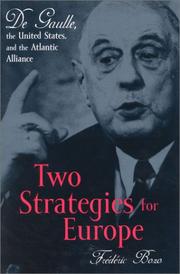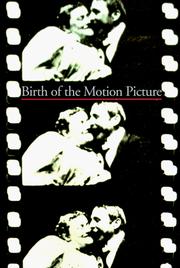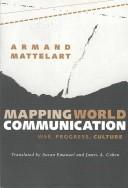| Listing 1 - 6 of 6 |
Sort by
|

ISBN: 084769531X Year: 2001 Publisher: Lanham, MD New York Oxford Rowman & Littlefield
Abstract | Keywords | Export | Availability | Bookmark
 Loading...
Loading...Choose an application
- Reference Manager
- EndNote
- RefWorks (Direct export to RefWorks)
Gaulle, Charles de, --- North Atlantic Treaty Organization --- France --- United States --- Etats-Unis --- Politics and government --- Foreign relations --- Politique et gouvernement --- Relations extérieures --- 1958-.... --- 1958-1969 --- Gaulle, Charles de, - 1890-1970. --- North Atlantic Treaty Organization.

ISBN: 0810928744 Year: 1995 Publisher: New York : H.N. Abrams,
Abstract | Keywords | Export | Availability | Bookmark
 Loading...
Loading...Choose an application
- Reference Manager
- EndNote
- RefWorks (Direct export to RefWorks)
Book
ISBN: 9780226011240 0226011240 1283281570 9781283281577 0226011224 9780226011226 9780226011226 0226011224 9786613281579 Year: 2011 Publisher: Chicago University of Chicago press
Abstract | Keywords | Export | Availability | Bookmark
 Loading...
Loading...Choose an application
- Reference Manager
- EndNote
- RefWorks (Direct export to RefWorks)
In today's academe, the fields of science and literature are considered unconnected, one relying on raw data and fact, the other focusing on fiction. During the period between the Renaissance and the Enlightenment, however, the two fields were not so distinct. Just as the natural philosophers of the era were discovering in and adopting from literature new strategies and techniques for their discourse, so too were poets and storytellers finding inspiration in natural philosophy, particularly in astronomy. A work that speaks to the history of science and literary studies, Fictions of the Cosmos explores the evolving relationship that ensued between fiction and astronomical authority. By examining writings of Kepler, Godwin, Hooke, Cyrano, Cavendish, Fontenelle, and others, Frédérique Aït-Touati shows that it was through the telling of stories-such as through accounts of celestial journeys-that the Copernican hypothesis, for example, found an ontological weight that its geometric models did not provide. Aït-Touati draws from both cosmological treatises and fictions of travel and knowledge, as well as personal correspondences, drawings, and instruments, to emphasize the multiple borrowings between scientific and literary discourses. This volume sheds new light on the practices of scientific invention, experimentation, and hypothesis formation by situating them according to their fictional or factual tendencies.
Cosmología --- Literatura --- Cosmology in literature. --- Literature and science. --- Cosmology --- European literature --- Poetry and science --- Science and literature --- Science and poetry --- Science and the humanities --- History. --- History and criticism. --- Cosmology in literature --- Literature and science --- History --- History and criticism --- Cosmologie dans la littérature --- Littérature et sciences --- Cosmologie --- Littérature européenne --- Histoire --- Histoire et critique --- scientific, scientist, universe, stars, astrology, literature, literary, 1600s, history, historical, academic, scholarly, research, stories, renaissance, enlightenment, time period, era, natural philosopher, philosophy, nature, philosophical, discourse, terms, astronomy, astronomical, planets, space, kepler, godwin, close reading, analysis, critique, interdisciplinary. --- Universo --- Metafísica --- Deísmo --- Ciencias espaciales --- Cosmología antigua --- Cosmología bíblica --- Agujeros negros (Astronomía) --- Cosmología judía --- Filosofía de la naturaleza --- Literatura mundial --- Arte literario --- Bellas letras --- Ficción --- Filología --- Romanceros --- Absurdo (Filosofía) en la literatura --- Crítica literaria --- Adivinación en la literatura --- África en la literatura --- Afrodita (Deidad griega) en la literatura --- Agricultura en la literatura --- Agua en la literatura --- Alimentos en la literatura --- Argumentos (Teatro, novela, etc.) --- Géneros literarios --- Juegos lingüísticos --- Parodias --- Prosa --- Arte de escribir --- Orígenes --- Thematology --- History of civilization --- anno 1600-1699
Book
ISBN: 9780875804668 Year: 2012 Publisher: DeKalb (Ill.) : NIU Press,
Abstract | Keywords | Export | Availability | Bookmark
Book
ISBN: 9780199382545 0199382549 Year: 2018 Publisher: New York, NY Oxford University Press
Abstract | Keywords | Export | Availability | Bookmark
 Loading...
Loading...Choose an application
- Reference Manager
- EndNote
- RefWorks (Direct export to RefWorks)
Novelist Honoré de Balzac was the first to use the phrase "Paris savant" to refer to the dynamic Parisian scientific and intellectual community of the late 18th century. The Academy of Sciences was highly active during this time, and was a meeting place for intellectual and scientific elite, who worked together toward the diffusion of scientific knowledge into Parisian society. The Royal Observatory was a headquarters for French astronomy, as well as the great geodesic project to map all of France. The Royal Mint hosted courses in chemistry and mining, and the Arsenal near the Bastille housed the laboratory of Lavoisier, the most celebrated chemist of the age. This book is the English translation of Bruno Belhoste's Paris Savant: Encounters in Enlightenment Science, originally published in France in 2011. Belhoste discusses how the Parisian scientific community came into its important place in the French Enlightenment, focusing on the Academy of Sciences. Chapters cover subjects such as what role Parisian geography played in the movement, the contributions of French scientists to industrial and urban improvement, and how the Academy of Sciences clashed with the revolutionary crisis, resulting in its closing in 1793. The translation includes a prologue for English readers.
Science --- Scientists --- Natural science --- Natural sciences --- Science of science --- Sciences --- Professional employees --- History --- Paris (France) --- Parijs (France) --- Pařiž (France) --- Parizh (France) --- Париж (France) --- Parigi (France) --- Bārīs (France) --- باريس (France) --- Lutetia (France) --- Paryż (France) --- Párizs (France) --- Parisioi (France) --- Parisi (France) --- Παρίσι (France) --- Parys (France) --- Parij (France) --- Parĩ (France) --- Bali (France) --- Pa-lí (France) --- 巴黎 (France) --- Horad Paryz︠h︡ (France) --- Горад Парыж (France) --- Paryz︠h︡ (France) --- Парыж (France) --- Парис (France) --- Parighji (France) --- Pariggi (France) --- Pariis (France) --- Париж ош (France) --- Parizh osh (France) --- Parizo (France) --- Páras (France) --- Paarys (France) --- Pâ-lì-sṳ (France) --- 파리 (France) --- Palika (France) --- פריז (France) --- Lutèce (France) --- Paris --- Seine (France) --- Intellectual life --- City of Paris --- 02.01 history of science and culture. --- Intellectual life. --- Science. --- Scientists. --- 1700-1799. --- France --- Paris.

ISBN: 0816622620 Year: 1994 Publisher: Minneapolis (Minn.) : University of Minnesota press,
Abstract | Keywords | Export | Availability | Bookmark
 Loading...
Loading...Choose an application
- Reference Manager
- EndNote
- RefWorks (Direct export to RefWorks)
Communication --- Communication, International. --- History.
| Listing 1 - 6 of 6 |
Sort by
|

 Search
Search Feedback
Feedback About UniCat
About UniCat  Help
Help News
News